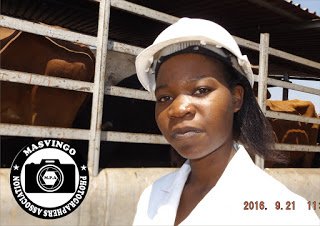
Sharon Matinhira is a third-year food science student at Masvingo Poly Technical College. She says working with food has always been her childhood passion.
Africa faces many critical challenges, chief among them raising the quality of its human resources, accelerating economic development and improving its people’s well-being.
Urbanisation and growing per capita incomes will translate into greatly increased demand for processed foods, high value foods (dairy, meat and fresh fruits and vegetables).
Matinhira, who did her second year industrial attachment at Montana Carswell Meats in Masvingo, says she wants to use her skills to contribute to food security.
“The agribusinesses emerging to meet this growing demand will require food scientists with expertise in modern food production and food safety technologies. At the same time, evidence shows that dietary changes and accompanying lifestyle changes are driving a rapid nutrition transition.
“I gained a lot of exposure in terms of meat production, inspection and processing at Montana Carswell Meats. I would like to have my forth year industrial attachment at a dairy institution so that by the time I finish my five year programme, I will have a better understanding of both sectors,” says Matinhira.
Africa is changing rapidly and so are the challenges. Across the continent, the population continues to grow at roughly 3 percent per annum and is expected to double to 2 billion people by 2050.
According to UN Habitat by 2030 more than 50 percent of Africans will live in cities. As a result, Africa’s food consumption patterns will change dramatically over the coming decades.local






